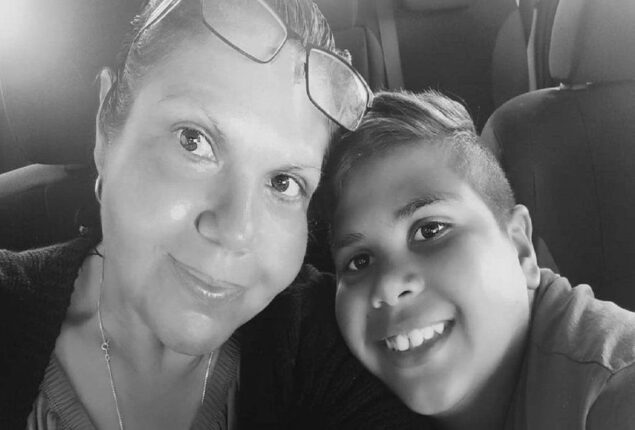Steve Smith describes Gabba pitch most difficult to play on in Australia
34 South African wickets fell in two days, marking it the shortest...

Cassius Turvey’s racial killing stunned Australia
The suspected murder of a 15-year-old Indigenous teenager, Cassius Turvey, horrified Australia this year.
Cassius of the Noongar Nation in Western Australia was attacked with a metal pole while heading home from school in October.
After a 10-day coma, he died of his injuries. His death prompted nationwide vigils and fundraising for his family.
The 15-year-old from Perth was named after Muhammed Ali’s former pseudonym, Cassius Clay. He enjoyed school and basketball and managed a tiny community business, the “Lawnmower Boys,” which mowed people’s lawns for no set charge.
Cassius’ mother Mechelle remarked at a memorial in his hometown, “We knew he would be a dazzling star.” His smile and laughter showed his family this. His heart was bigger than life.”
Cassius’ mother criticized the police for just taking a brief statement from him the night he was hospitalized, with no further statement taken before he died.
“No detectives or police called. Nothing. 5 days. She said, “That was their chance.”
Western Australia’s Police Commissioner Col Blanch drew fire for trying to dismiss the attack’s racial aspect, saying “it may be a matter of being in the wrong place at the wrong time.”
Stephen Brearley, 21, was accused of the teen’s murder, which the prime minister called “obviously racially motivated.”
Joshua Eggington, known as Flewnt, contributed to a Cassius tribute song called “Forever 15.”
Flewnt, a Noongar, told Al Jazeera that “the biggest shock was that it wasn’t being addressed as a homicide”
“That really pained me because I believed it was a way for white Australia to avoid addressing it and be comfortable,” the musician added.
“That sickened and pained me.”
Support for Cassius’ family and community is great, but it doesn’t mean Indigenous youth are safe, he said.
“It can be misleading because you may feel our mob is safer because of online support,” he said.
Our people still suffer when it comes to meaningful action and change.
Cassius’ murder is the latest atrocity on Indigenous children and youth to shock Australia.
TJ Hickey, 17, was impaled on a fence after a police chase in 2004. Elijah Doughty, 14, died after being run over by a man following a stolen motorcycle. Indigenous youngsters in the Northern Territory’s Don Dale Youth Detention Centre were tear-gassed, stripped naked, and shackled to chairs while wearing spit hoods in 2016.
Noongar woman Megan Krakouer of the National Suicide Prevention and Trauma Recovery Project told Al Jazeera that “racism and discrimination are embedded” in Australian laws and practices.
She stated this was a fundamental component of Indigenous people’s “poverty narrative.”
“While grief, solidarity, and sadness [for Cassius] affected many lives, we still hold the Australian government accountable for dispossession, marginalization, and inequalities,” she stated.
She said vigils demonstrated solidarity. “[Cassius] is dead. Our communities face systemic problems. No legislative changes.
Indigenous children and youth make up approximately 50% of youth detainees while being less than 5% of Australia’s population. 1 in 4 state-cared youngsters is Indigenous.
These data help explain why 30% of Australia’s adult inmates are Indigenous.
Cassius, who was apparently a school success, was already overcoming systemic difficulties when he died.
60% of Indigenous individuals questioned by Reconciliation Australia experienced racial bias in the past six months, according to a report. This is a 20% increase from 2018.
57% of First Nations people say Australia is a racist country, and 42% of non-Indigenous respondents agree.
As instances of bigotry in sport and the workplace and the death of a young Noongar man hit the news, it’s evident that Australia can do better, Mundine said.
Australia has dealt with racism in Indigenous attacks, the criminal justice system, and sports.
Indigenous footballer Adam Goodes was taunted by supporters in 2015, and fresh racism charges have come from teams.
June Oscar, of the Bunuba people, Australia’s Human Rights Commissioner, told Al Jazeera that public support for Cassius showed “the people of Australia are standing up to the atrocities experienced by First Nations peoples.”
She added, “We want an end to all violence, including societal, structural, and systemic violence.”
“Colonisation and discriminatory laws and policies are fundamental injustices,” she remarked.
“We must address this history before altering systems and structures that continue to harm First Nations people.”
Advocates want to raise the age of criminal responsibility to transform how Indigenous children are handled and reduce adult incarceration.
Indigenous children as young as 10 can be shackled and imprisoned under current law.
Catch all the World News, Breaking News Event and Latest News Updates on The BOL News
Download The BOL News App to get the Daily News Update & Follow us on Google News.